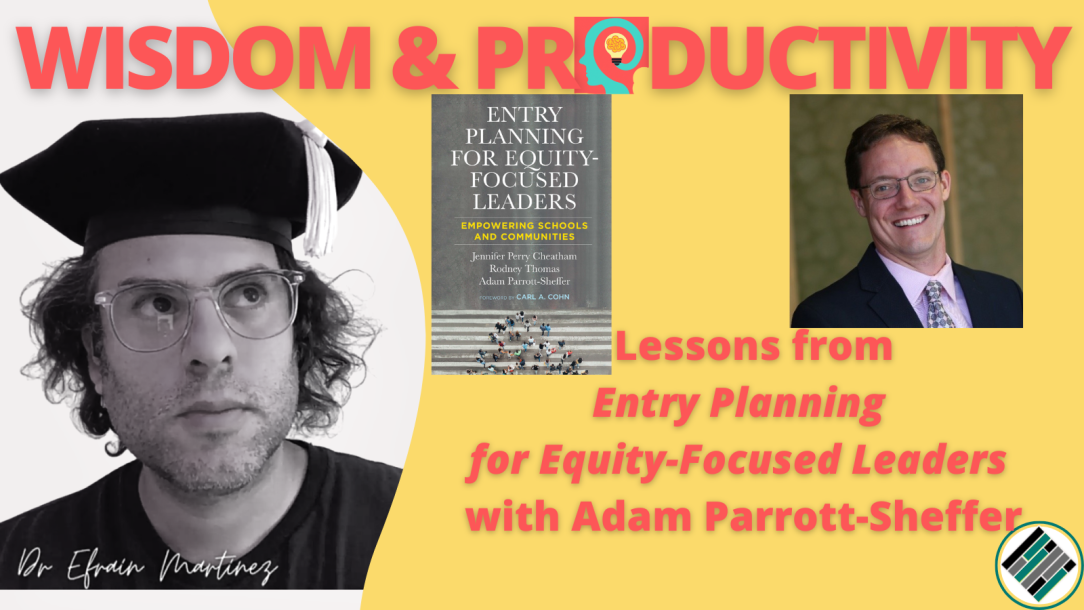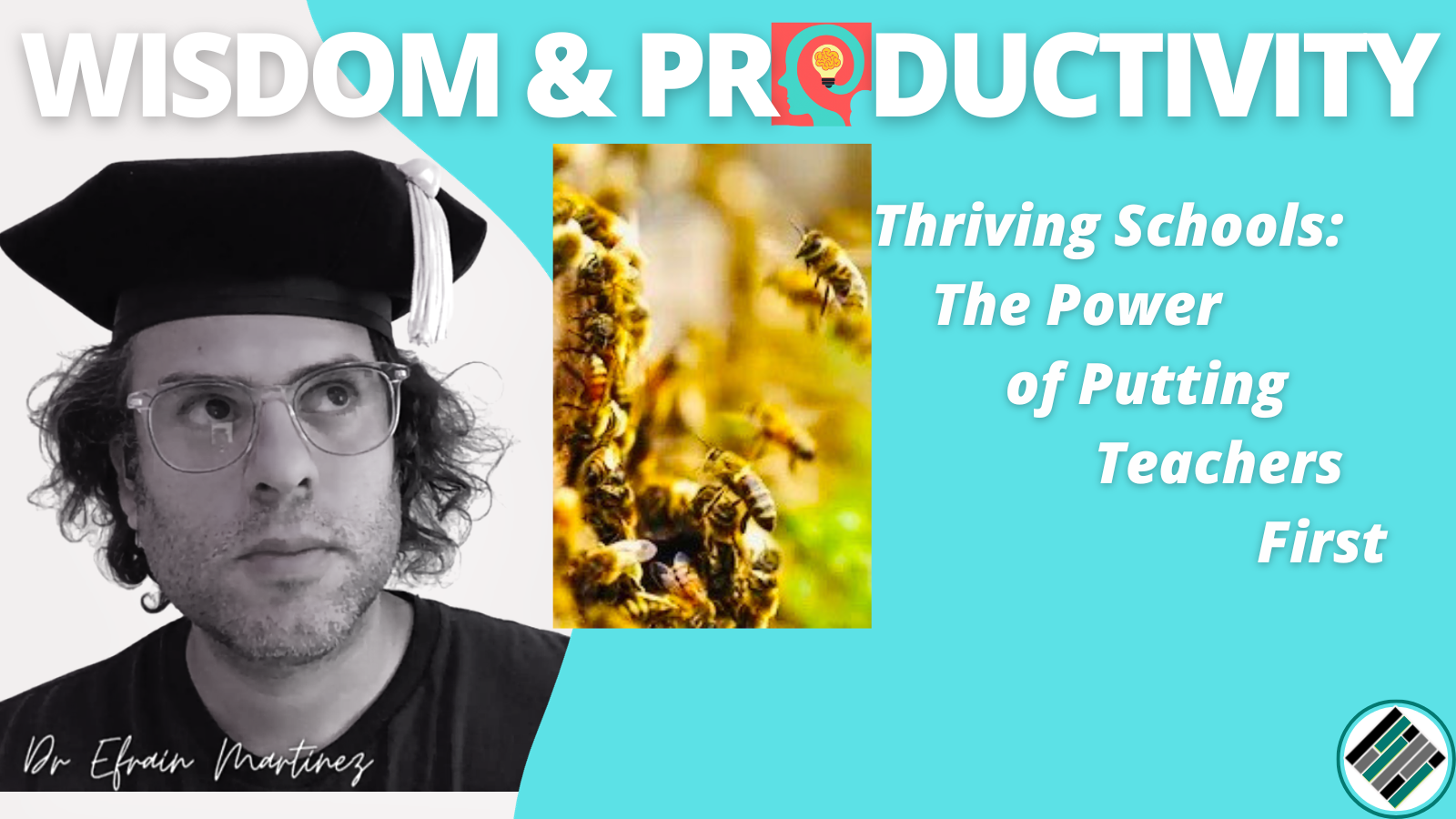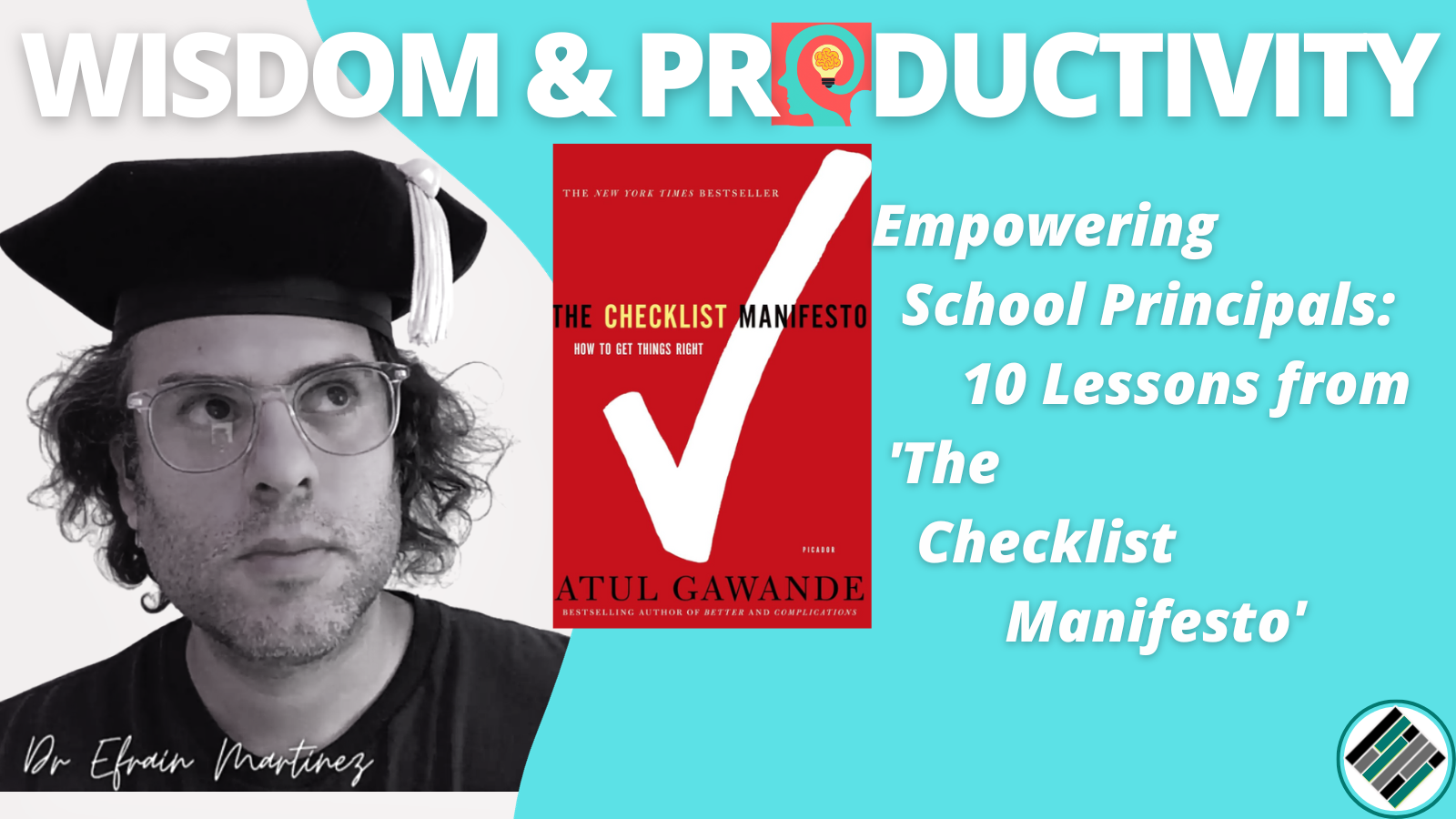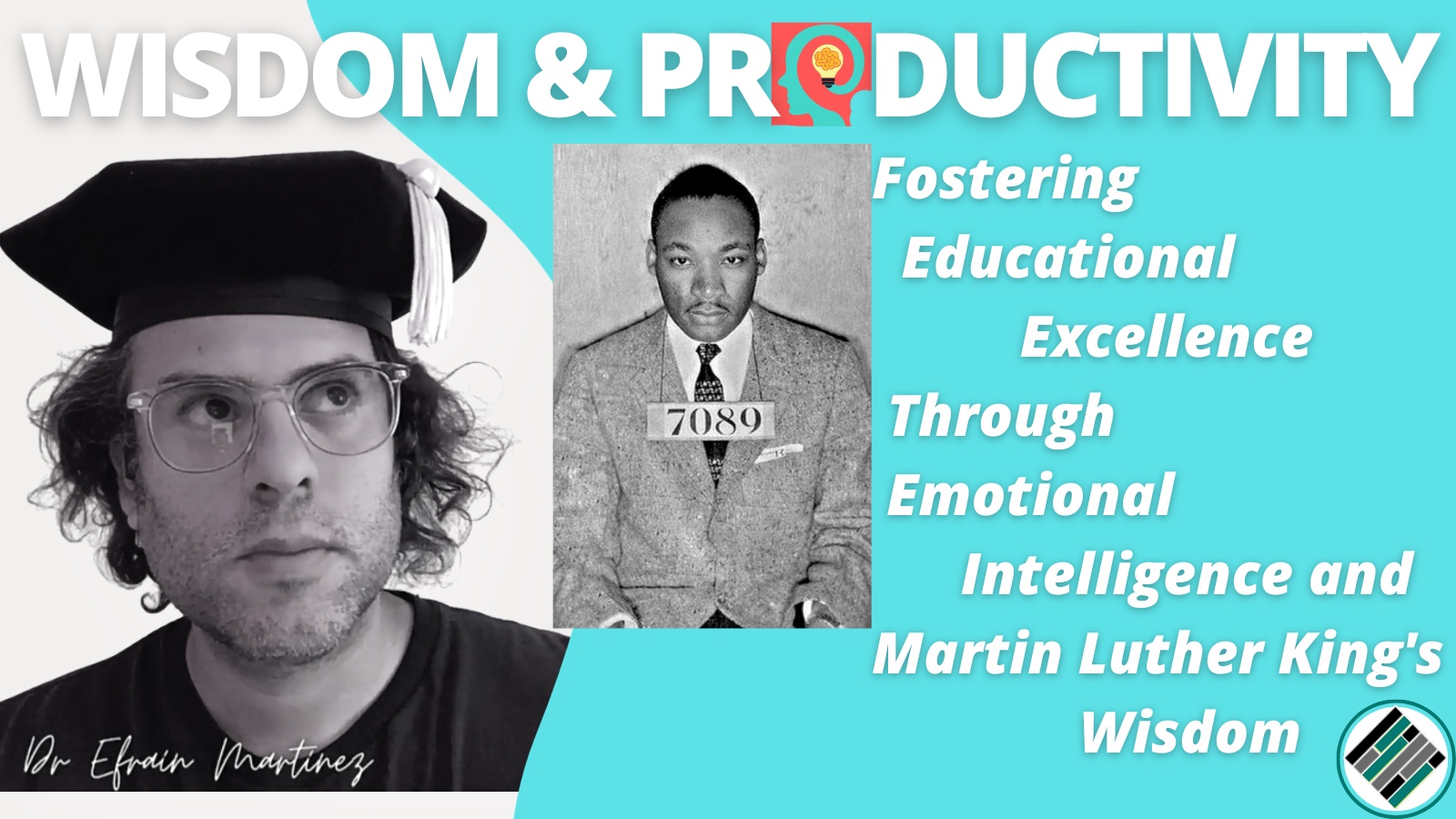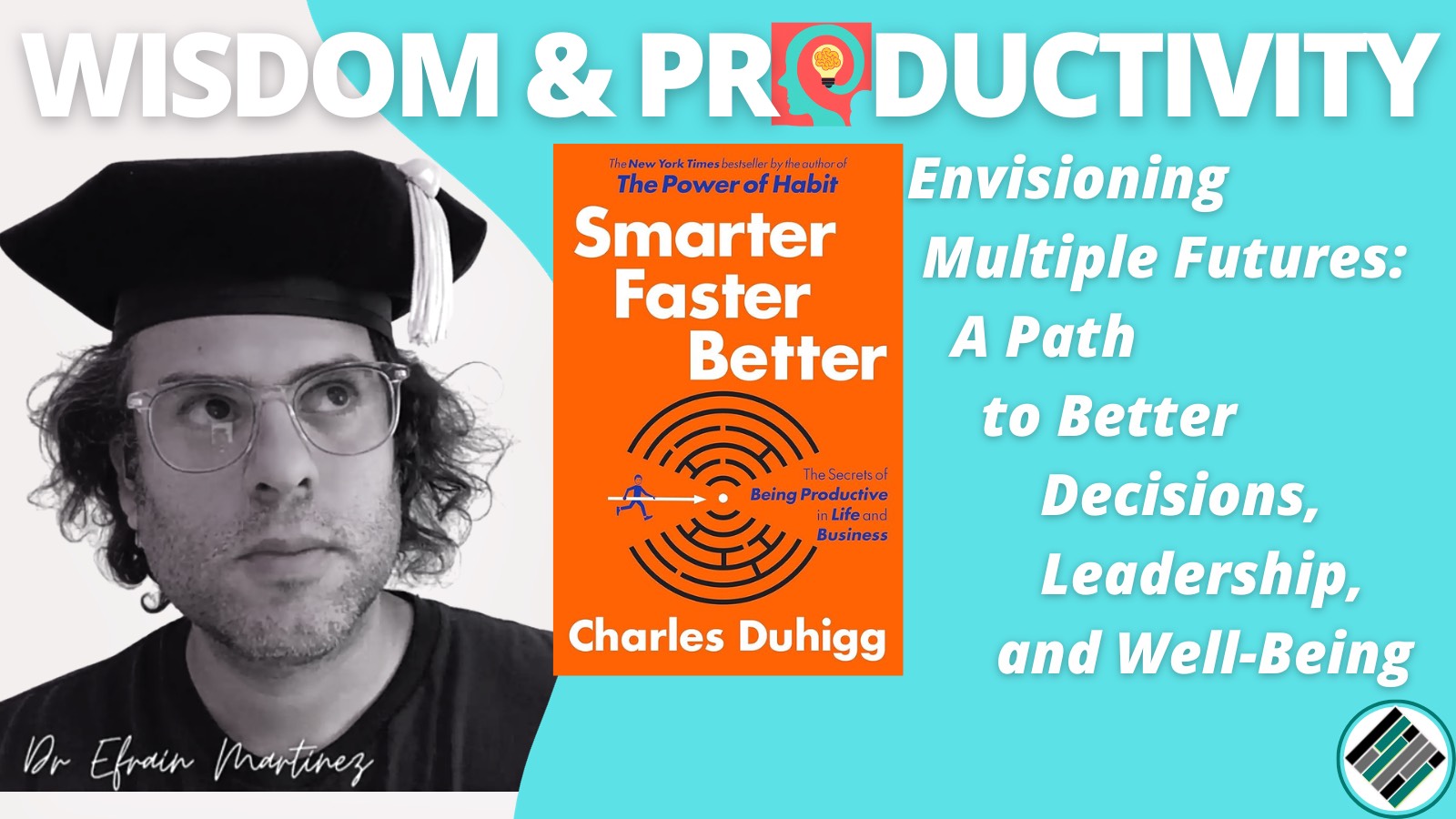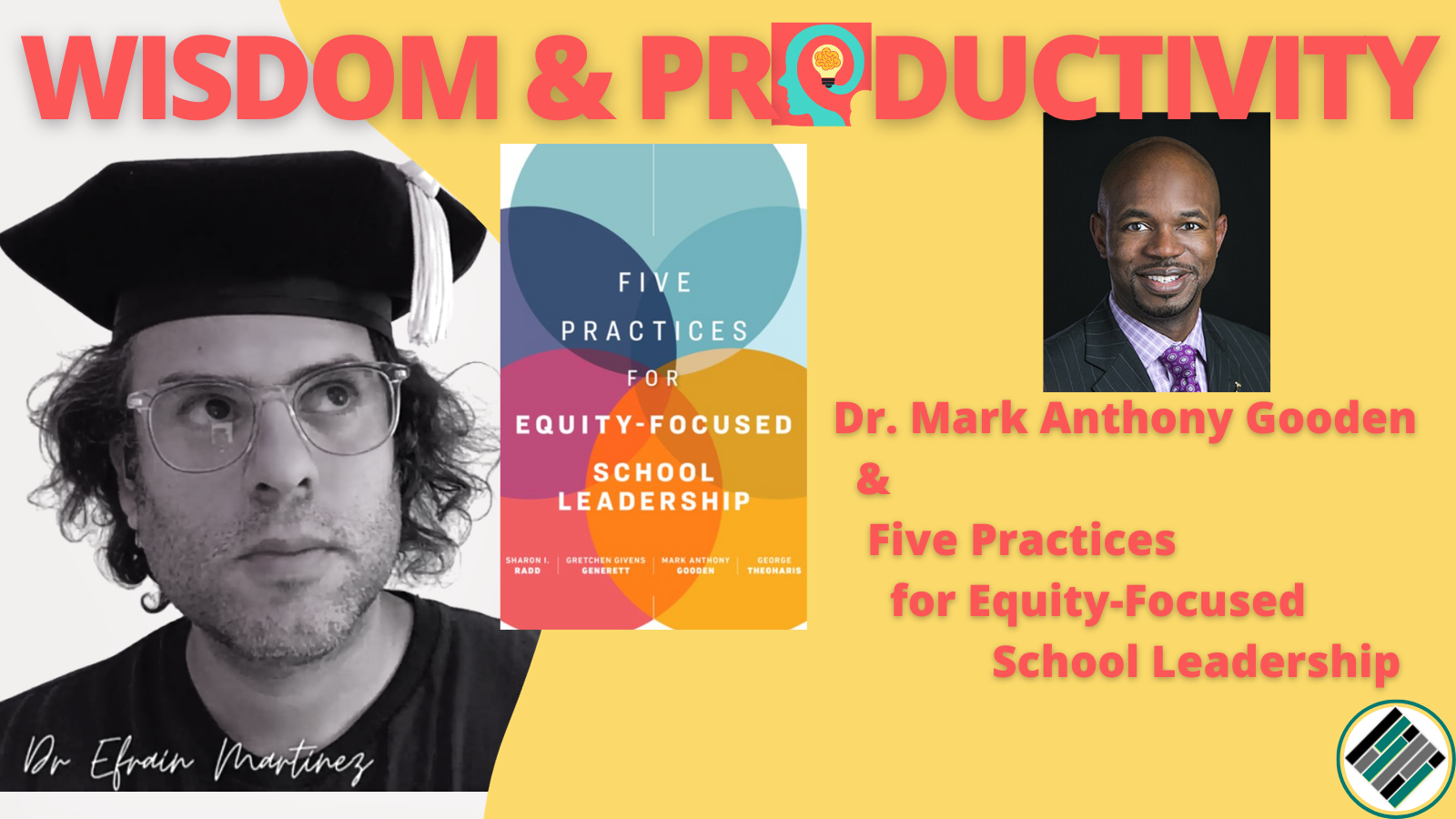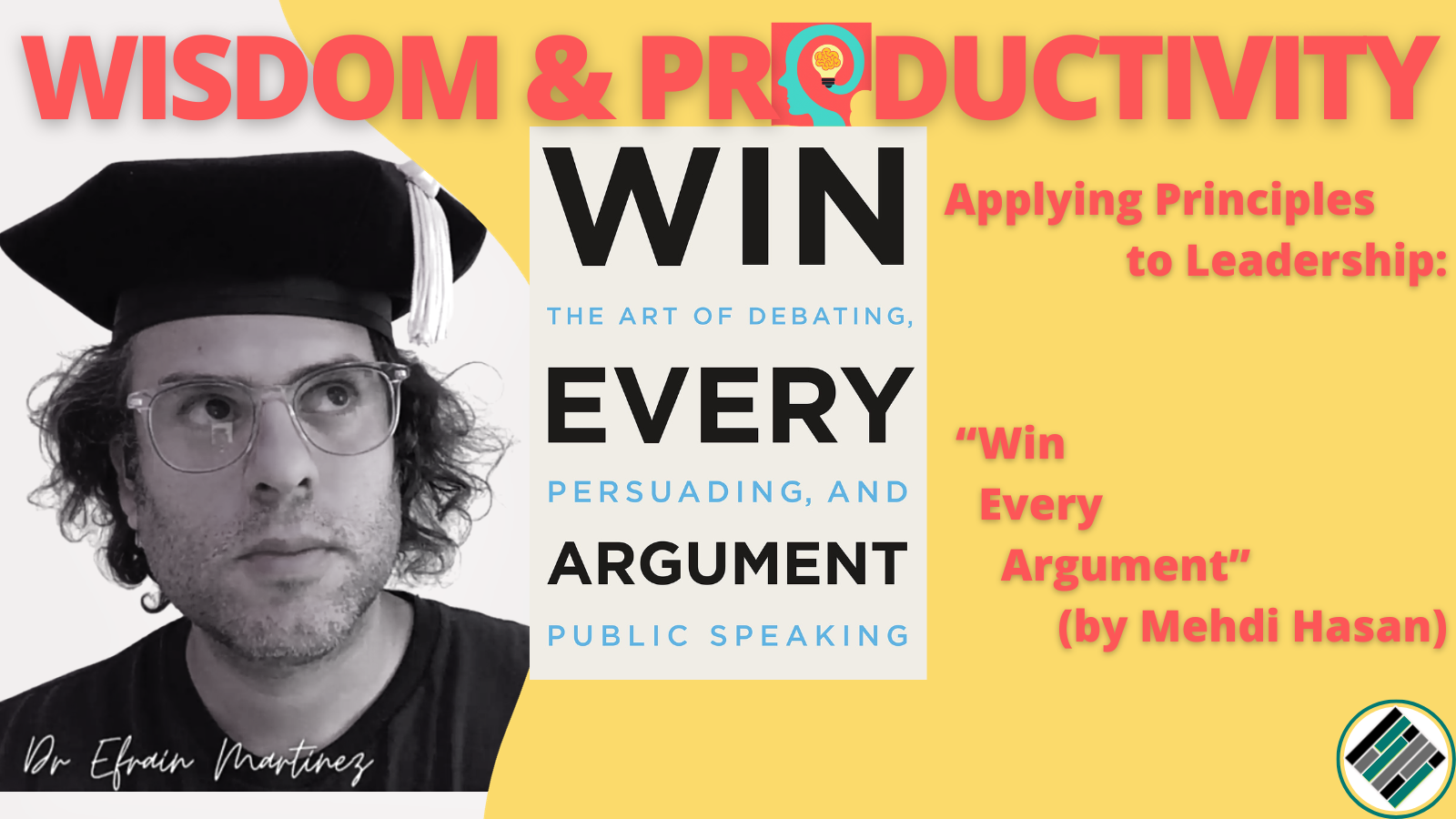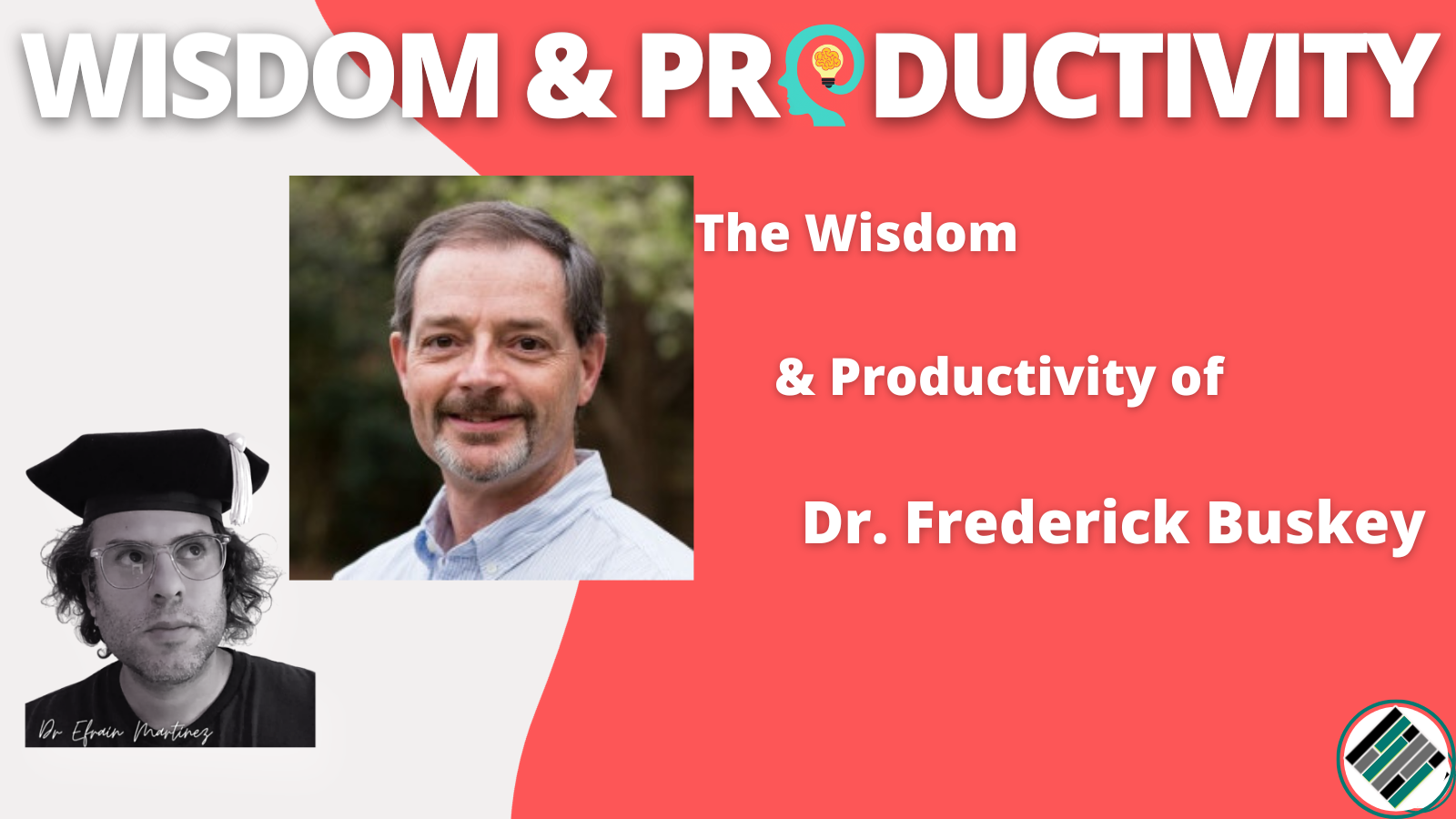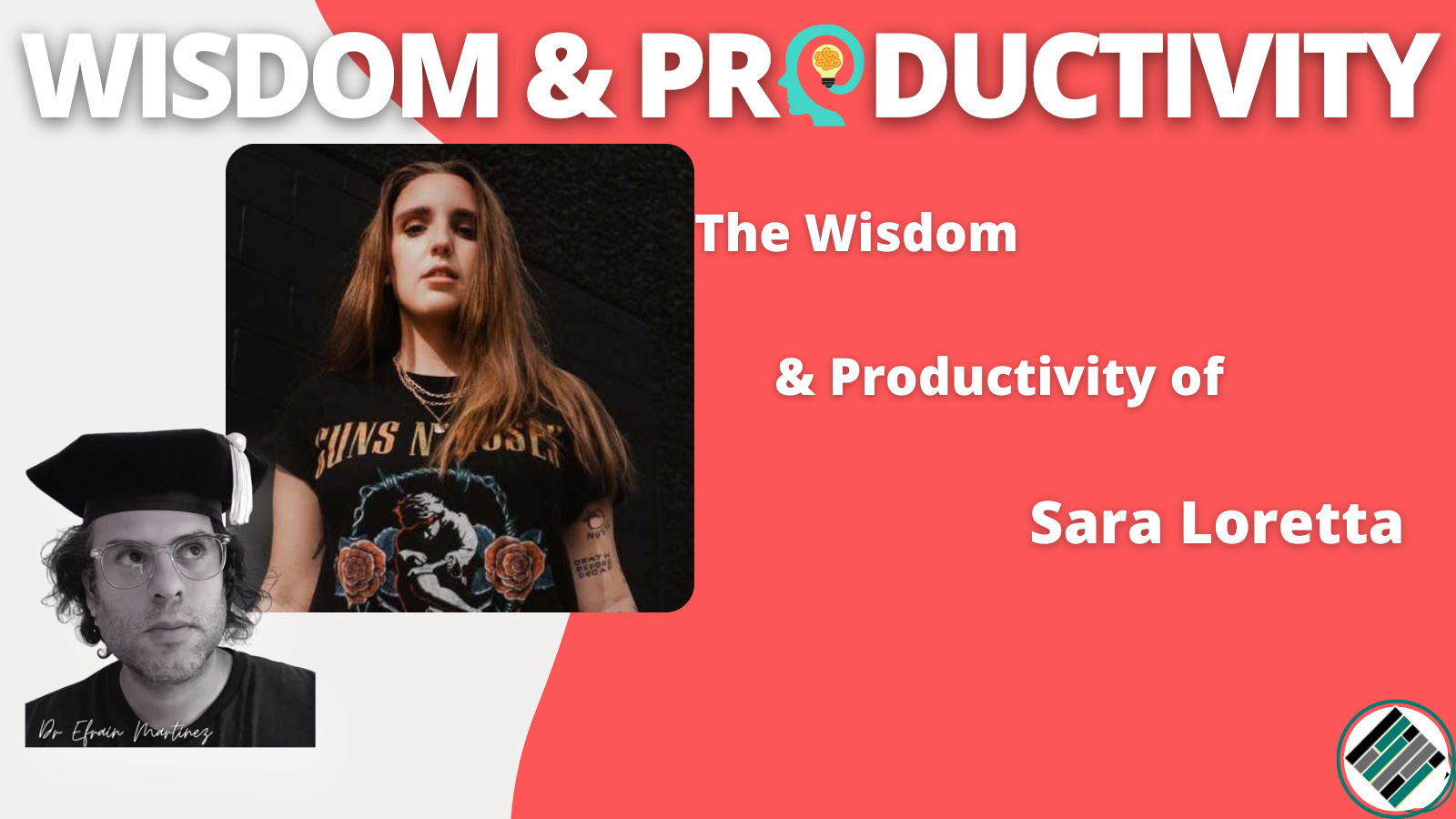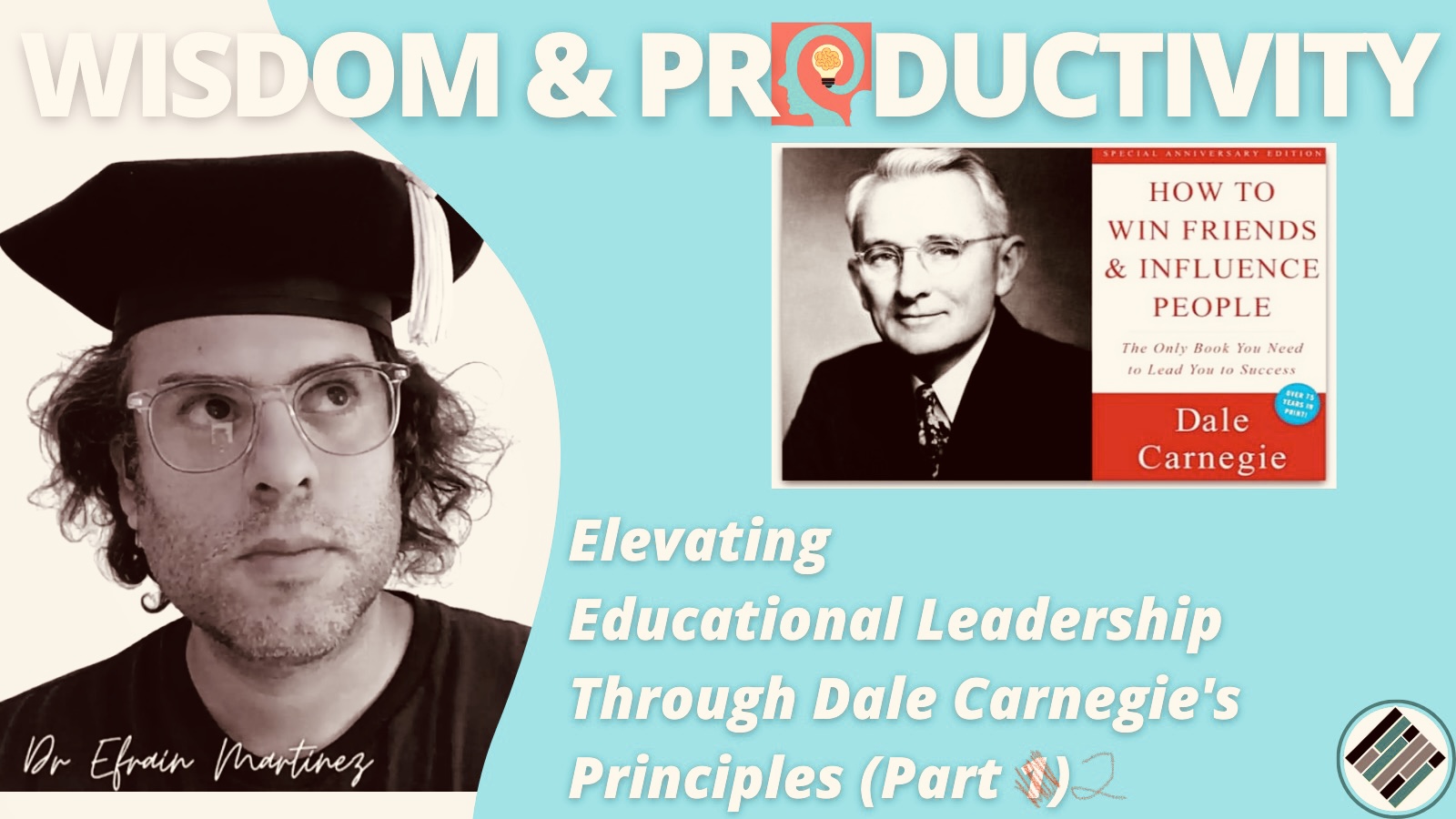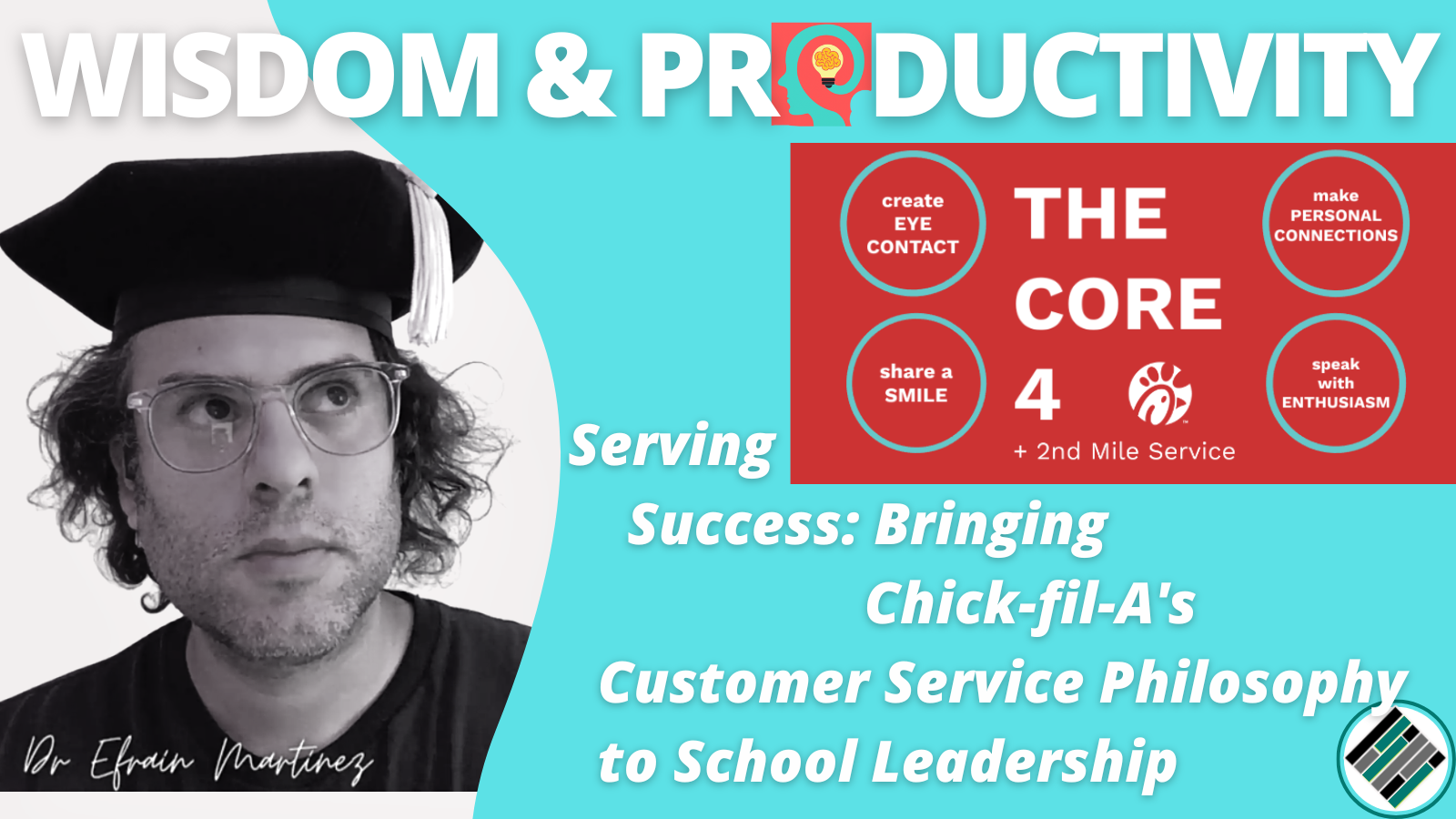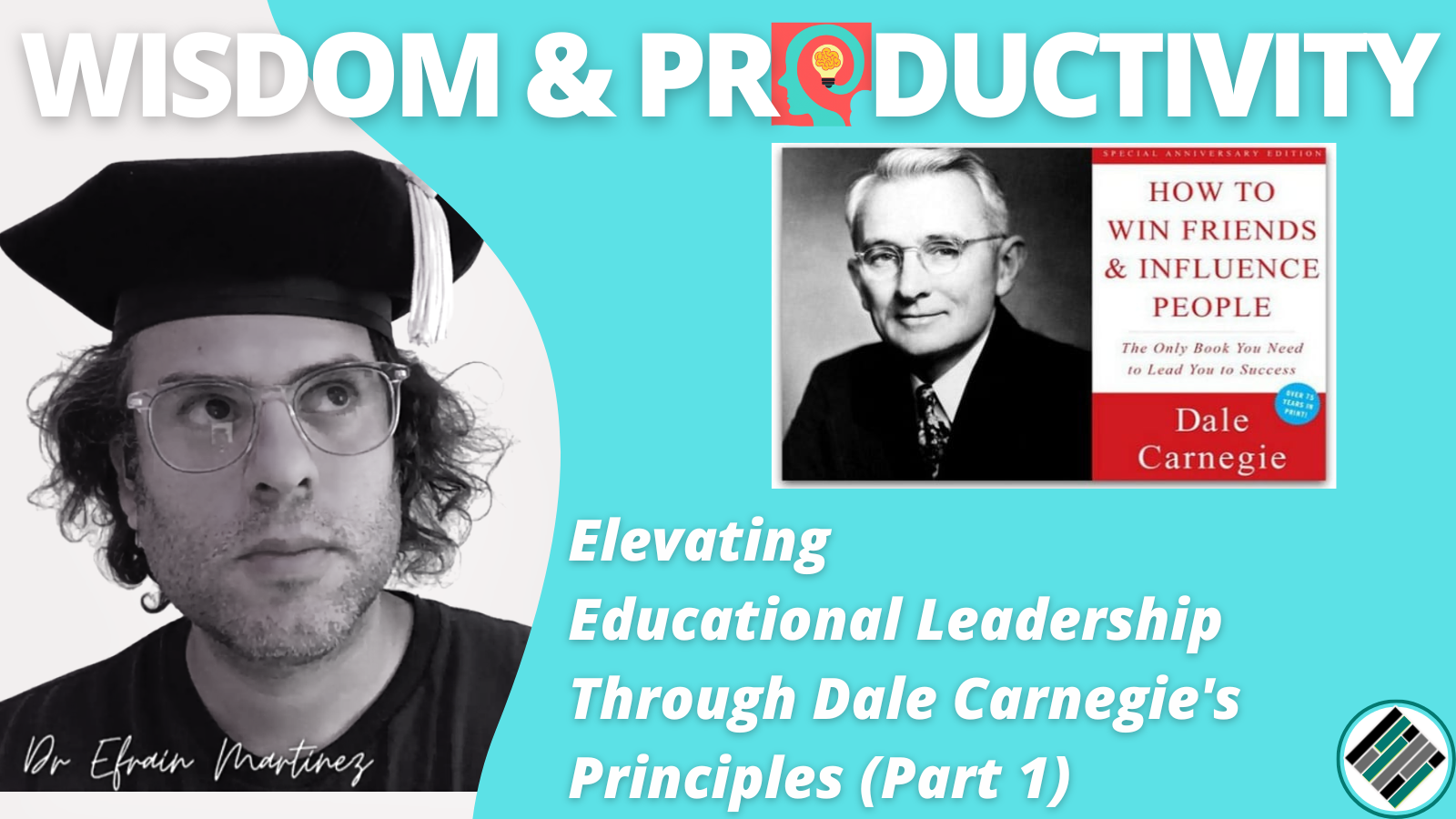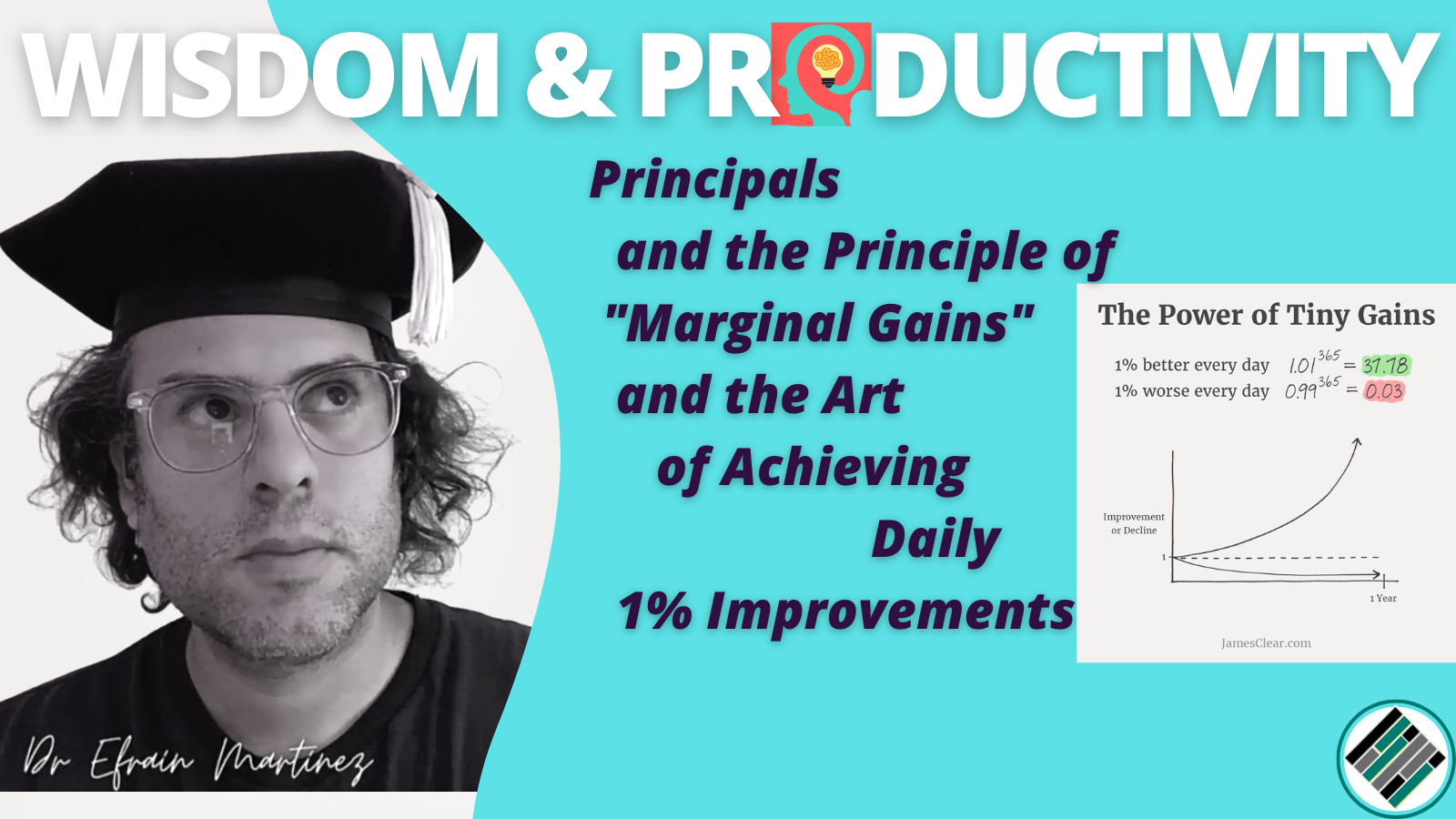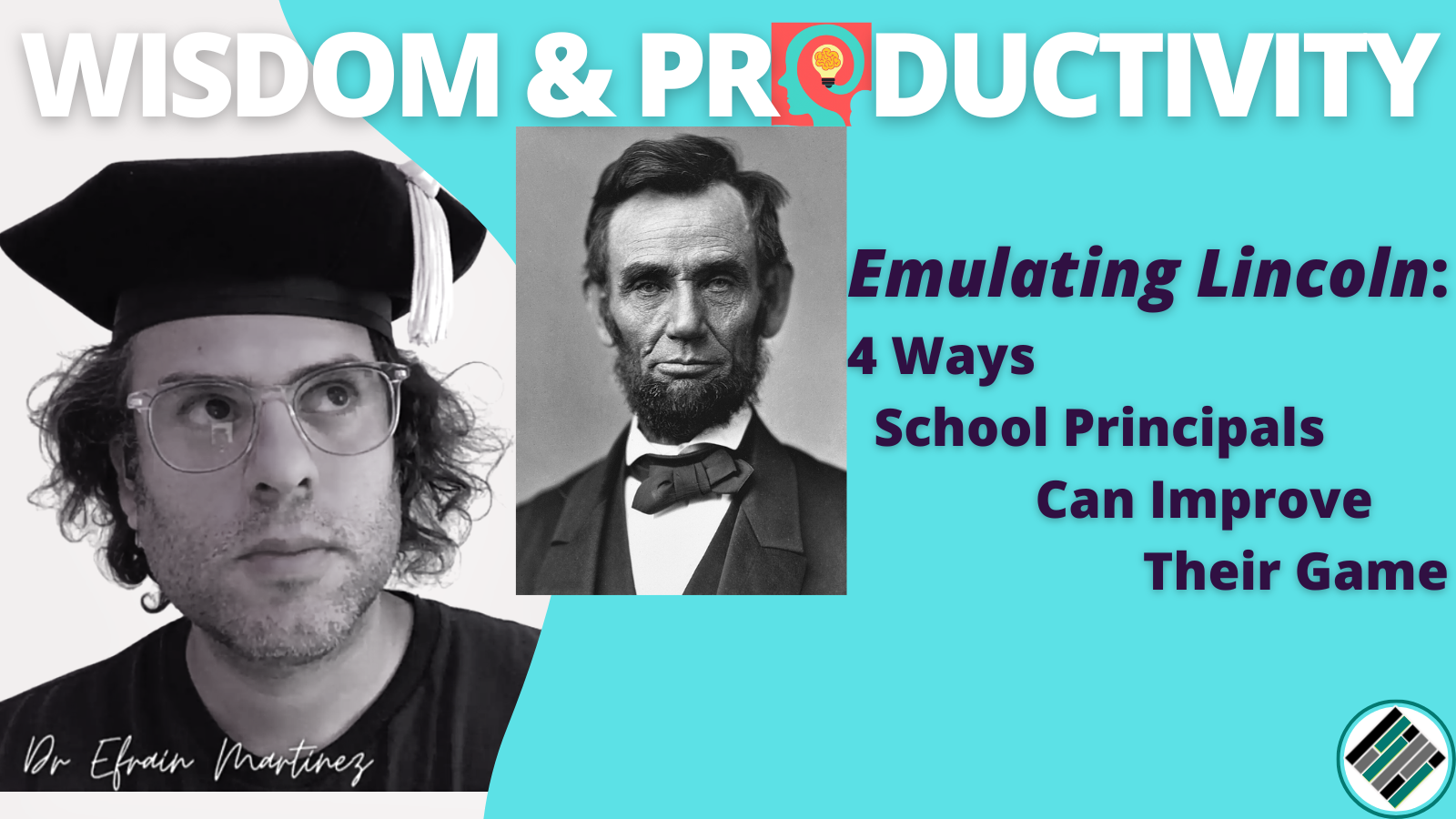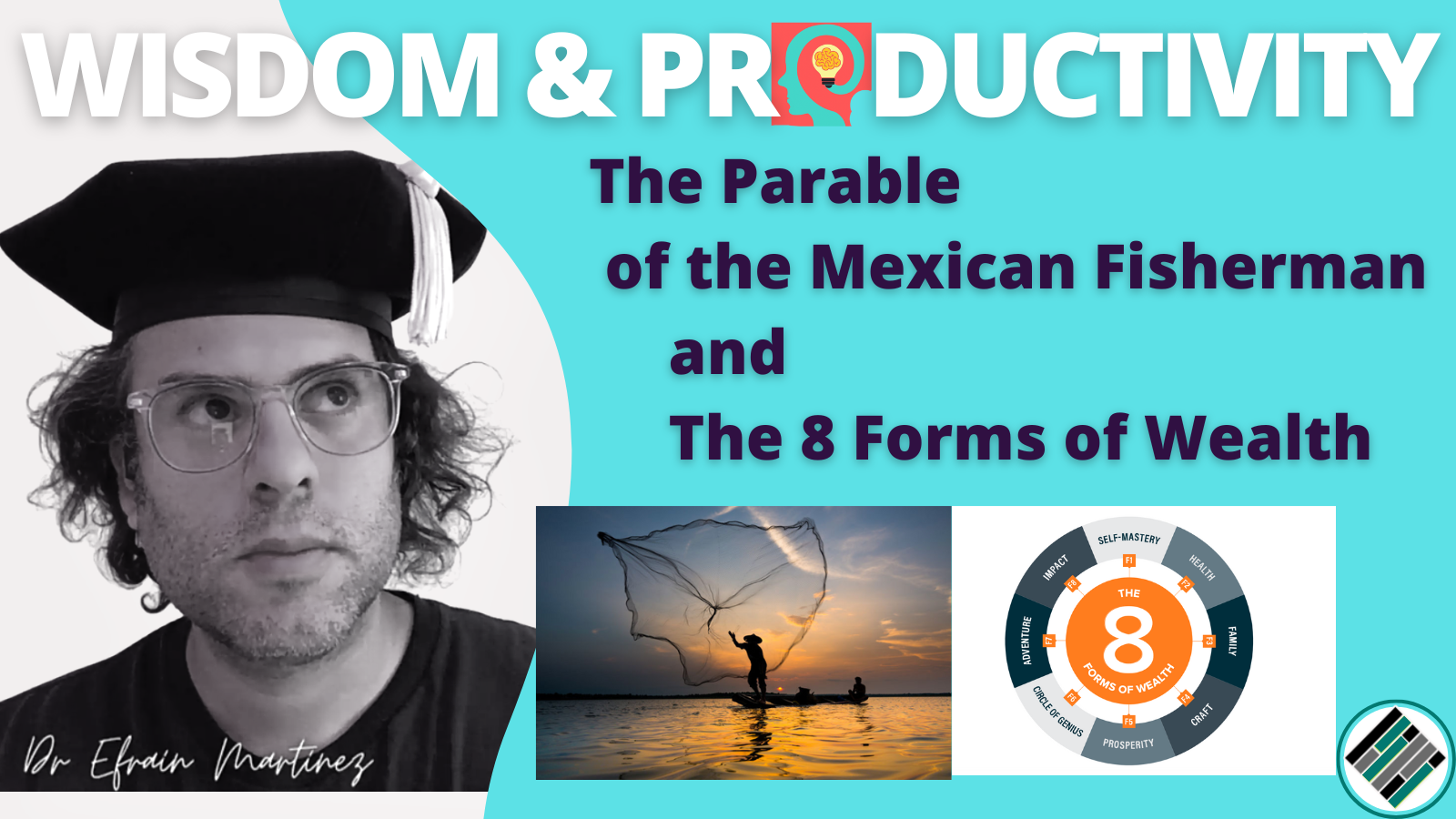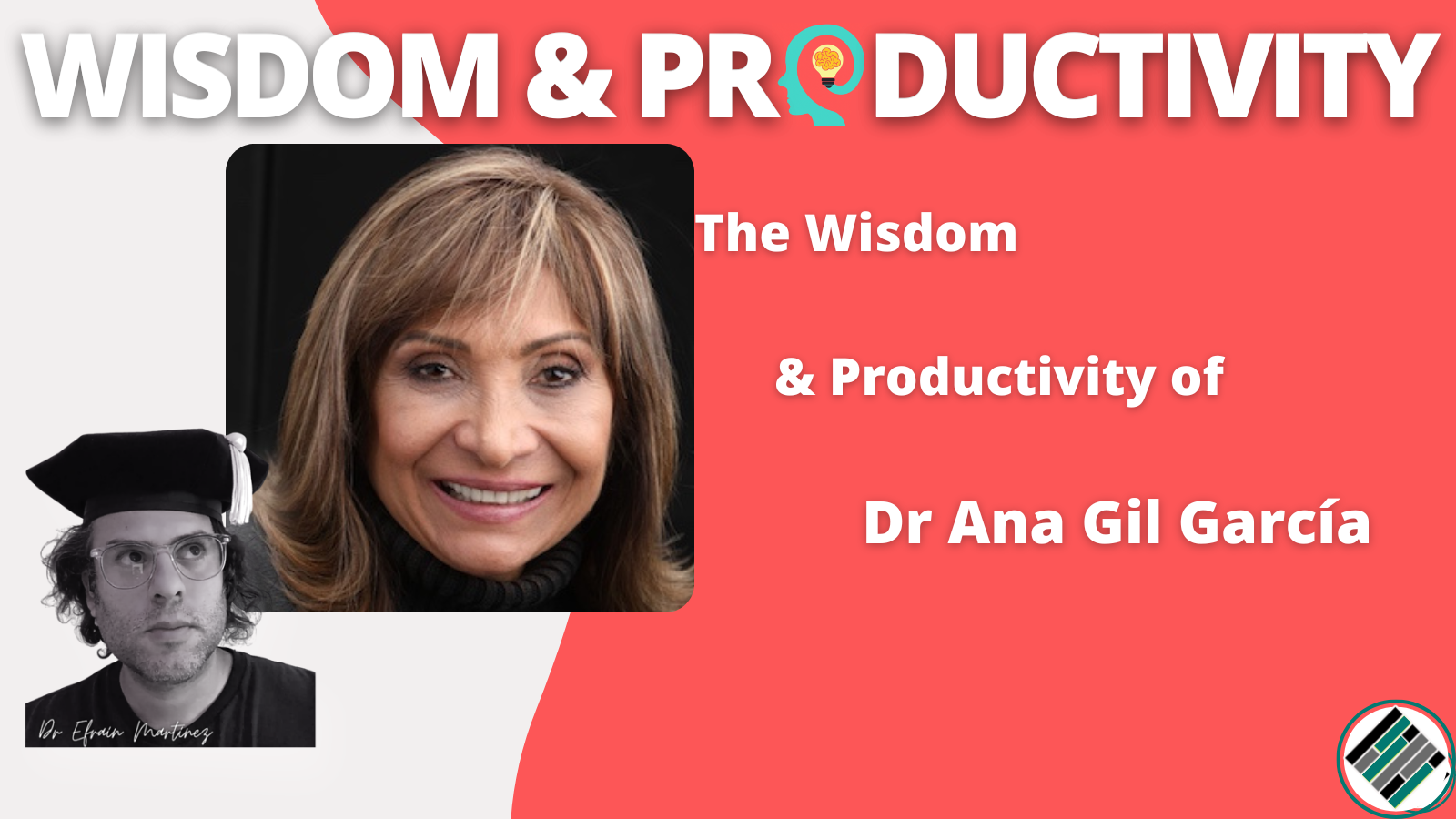Lessons from “Entry Planning for Equity-Focused Leaders:” with Adam Parrott-Sheffer
As a principal transitioning into a new position, I searched for the literature on entry plans and discovered “Entry Planning for Equity-Focused Leaders: Empowering Schools and Communities.” In this practitioner-focused and action-oriented work, Jennifer Perry Cheatham, Rodney Thomas, and Adam Parrott-Sheffer consolidate their extensive experience centering equity in leadership. They affirm that the entry of a new leader, or the pivot of an established one, affords an unparalleled opportunity to garner the insight, trust, and commitment to establish a basis for positive, equitable transformation within a system.
Today I have the distinguished honor of interviewing Adam Parrott-Sheffer, one of the co-authors. He was interviewed on Wisdom & Productivity when the show had just started and I am thankful he’s back for a second time.
Adam is a former nonprofit and school district senior leader. His areas of expertise include: leadership entry, team development, board management, and program evaluation/impact.
—QUESTIONS FROM THE PERSPECTIVE OF A PRINCIPAL
- Adam, how are you feeling?
- Please share with us the origin story of the book.
- Can you explain what an entry plan is and how it can help school principals achieve their goals?
- Why is equity such an important consideration for school principals, and how can an entry plan help them promote equity within their schools?
- Entry plan phases
- Reflect
- Listen and Learn
- Plan to Act
- Why is it important to develop a leadership story?
- Can you describe what empathy interviews look like?
- How to input this information and how to disaggregate this qualitative data in a way that makes sense?
- Can you tell us about the importance of political mapping?
- How can principals decide who to talk to? Are there some people one must avoid?
- Are the most important questions:
- What do you like about ______?
- What do you want to see better or improve?
- How can one engage non dominant voices?
- The book talks about superintendents getting a team and even hiring consultants; how can principals adapt this advice?
- Quote: “A leader must connect values and strategy through EMOTIONS to generate collective action.”
- How can principals share findings?
- James Baldwin quote: “not everything that is faced can be changed, but nothing can be changed until it is faced.”
- An example of a CORRESPONDING STRENGHTS-BASED LANGUAGE: “the highest form of school love is the belief that each student is capable of excellence and deserving of deep learning and critical feedback”
- How to persuade the teachers or administrators who want to put blame on things that we cannot control?
- What is your advice on creating report of findings
- Without offending people
- Sensemaking process
- And making time for healing
- The three authors expressed they did everything they were supposed to do but didn’t center the importance of healing, self-care, and care for others – perhaps THIS IS THE MOST IMPORTANT SHIFT
- Wondering if this will delay the expected progress districts have for principals — what advice do you have importance of self care as act of resistance
- Cheatham mentioned that she worked 14 hour days and this took a toll in the family
- Wondering if this will delay the expected progress districts have for principals — what advice do you have importance of self care as act of resistance
- The advice of not emailing people at night as it can trigger negative emotions
- Should principals schedule email time?
- Adam expresses his gratefulness on the last pages for those that supported him and mentions joyful learning; can we end the show by you telling us on how we can make learning (and teaching) joyful again?

